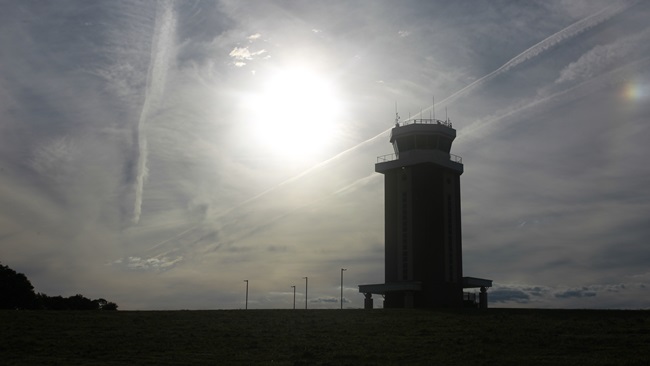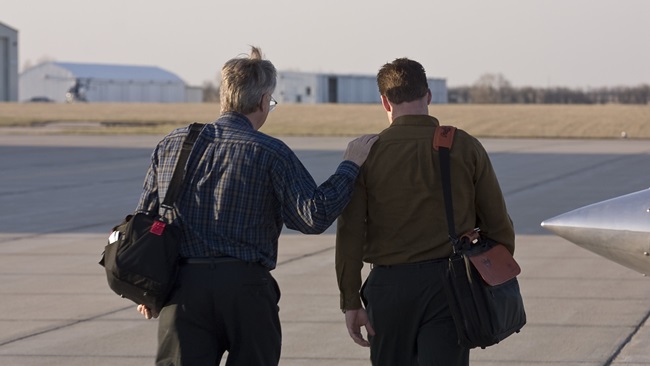
A group of powerful senators and representatives has introduced new legislation in both houses of Congress that would allow thousands of pilots to fly without going through the costly and time-consuming third class medical process and would offer new protections for general aviation pilots.
Under the Pilot’s Bill of Rights 2, pilots flying recreationally in a wide range of aircraft would no longer need to obtain a third class medical certificate. The new bill would allow private pilots to make noncommercial VFR and IFR flights in aircraft weighing up to 6,000 pounds with up to six seats. Pilots also would be allowed to carry up to five passengers, fly at altitudes below 14,000 feet msl, and fly no faster than 250 knots. Pilot’s Bill of Rights 2 also includes a provision to ensure that pilots can fly under the new rules even if the FAA fails to comply with the bill’s provisions 180 days after enactment.
“The introduction of the Pilot’s Bill of Rights 2 is great news for the general aviation community and we are grateful to Sens. Jim Inhofe and Joe Manchin, and Reps. Sam Graves and Dan Lipinski, and all their bipartisan colleagues for putting forward this legislation that would do so much to help grow and support GA activity,” said AOPA President Mark Baker. “Pilots have already waited too long for medical reform, so we’re particularly pleased to see it included in this important measure. Third class medical reform is our top legislative priority, and we will actively work with Congress to build support for this legislation that is so vital to the future of general aviation.”
In addition to third class medical reform, the Pilot's Bill of Rights 2, which was introduced in the House (H.R. 1062) and the Senate (S.571) late on Feb. 25, would protect GA pilots from liability on charitable flights, extend legal protections to FAA representatives, and require FAA contractors to provide information under Freedom of Information Act requests.
"Pilot's Bill of Rights being signed into law in 2012 was a major victory for the aviation community, but I promised we would not stop there,” said Inhofe. “Today, I am taking the next step in keeping that promise by introducing the Pilot's Bill of Rights 2, which expands upon necessary reforms and continues to cut red tape hampering the general aviation community. Among many things, the legislation most importantly expands the FAA's existing third-class medical exemption for light sport aircraft to cover most recreational airmen. This will protect the rights of thousands of qualified airmen who would otherwise be grounded due to excessive medical regulation technicalities; this reform is of great need. It is an honor to have the strong bipartisan support of my colleagues in Congress and of those in the general aviation community, and I am committed to shepherding this legislation through the 114th Congress.”
In addition to Inhofe, the Senate legislation was introduced by Sens. Manchin, John Boozman (R-Ark.), Steve Daines (R-Mont.), Bob Casey (D-Pa.), Jeanne Shaheen (D-N.H.), Angus King (I-Maine), John Barrasso (R-Wyo.), Heidi Heitkamp (D-N.D.), Jerry Moran (R-Kan.), Pat Roberts (R-Kan.), Jon Tester (D-Mont.), and Roger Wicker (R-Miss.). Both Inhofe and Manchin are AOPA members and Senate GA Caucus members, while Boozman serves as the Senate GA Caucus co-chair. Heitkamp, Moran, Roberts, Shaheen, Tester, and Wicker are also Senate GA Caucus members.
The legislation in the House was introduced by Reps. Graves, Lipinski, Todd Rokita (R-Ind.), and Collin Peterson (D-Minn.). Graves, Rokita, and Peterson are all AOPA members and House GA Caucus members, while Lipinski is a GA Caucus member who has been a stalwart GA supporter.
“As a pilot, I know how important the original Pilot’s Bill of Rights, as signed into law in 2012, has been in establishing needed protections for pilots when dealing with FAA enforcement proceedings,” said Graves. “This new bill improves upon those protections and expands the rights afforded to pilots and other certificate holders,” he continued. “I fully expect this bill to receive the same strong, bipartisan support in Congress and across the general aviation community.”
The language in the Pilot's Bill of Rights 2 regarding third class medical reform is identical to that in a new General Aviation Pilot Protection Act bill also introduced on Feb. 25 in the House (H.R. 1086) and Senate (S.573). Reps. Rokita, Graves, Steve Pearce (R-N.M.), Peterson, Lipinski, Bill Flores (R-Texas), Mike Pompeo (R-Kan.), and Richard Hanna (R-N.Y.) introduced the House measure. Like Graves and Rokita, Pearce, Flores, and Hanna are AOPA members.
In the Senate, the new General Aviation Pilot Protection Act legislation was introduced by Sens. Boozman, Kelly Ayotte (R-N.H.), who chairs the Senate Aviation Subcommittee, Joe Donnelly (D-Ind.), Inhofe, Moran, and Roberts.
Rokita and Boozman led the way on third class medical reform when they introduced similar legislation in the previous Congress. That earlier General Aviation Pilot Protection Act gained more than 180 bipartisan cosponsors in the House and Senate before it expired at the end of the congressional session.
“It’s clear that third class medical reform has widespread bipartisan support in Congress as well as in the general aviation community,” said Baker. “We appreciate the steadfast way in which Rep. Rokita and Sen. Boozman and their colleagues are pursuing this issue on behalf of GA pilots.”
In addition to medical reform, Pilot's Bill of Rights 2 includes provisions to improve the notice to airman (notam) program by establishing a rating system to prioritize notams, including TFRs, and creating a repository to maintain the information in a way that makes it accessible to the public. That system would be considered the sole source location for pilots to check for notams. The legislation also would protect pilots from enforcement action if a notam is not included in the repository and prohibit enforcement of notam violations if the FAA hasn’t finished the system within six months of the Pilot's Bill of Rights 2 being enacted while providing an exception for national security.
To help pilots facing enforcement actions, Pilot's Bill of Rights 2 would ensure that data collected by contract towers and other outsourced FAA programs is subject to the same Freedom of Information Act requirements as data from the FAA itself. The exception would be aviation safety action reports, which are designed to prevent accidents by encouraging voluntary reporting of safety concerns by employees of FAA contractors.
The measure also includes liability protections for representatives of the FAA working on behalf of the agency such as aviation medical examiners as well as nonprofit volunteer pilot organizations and volunteer pilots who fly for public benefit. The bill also would protect pilot certificates by preventing the FAA from requiring a re-examination of a covered certificate holder without clear evidence of wrongdoing or unsafe behavior.
AOPA was joined by other GA organizations in immediately sending letters of support for Pilot's Bill of Rights 2 to the lawmakers who introduced the legislation in the Senate and the House. The letters emphasized the importance of the legislation to the GA industry and thanked the legislators for leading the way on important reforms.
“The bill and its provisions will help ensure the future sustainability of our industry and its valuable contributions to the nation’s economy and transportation system,” the letters said.
In addition to AOPA’s Baker, the letters were signed by the leaders of the Experimental Aircraft Association, Flying Physicians Association, General Aviation Manufacturers Association, Helicopter Association International, National Agricultural Aviation Association, National Air Transportation Association, and National Business Aviation Association.



